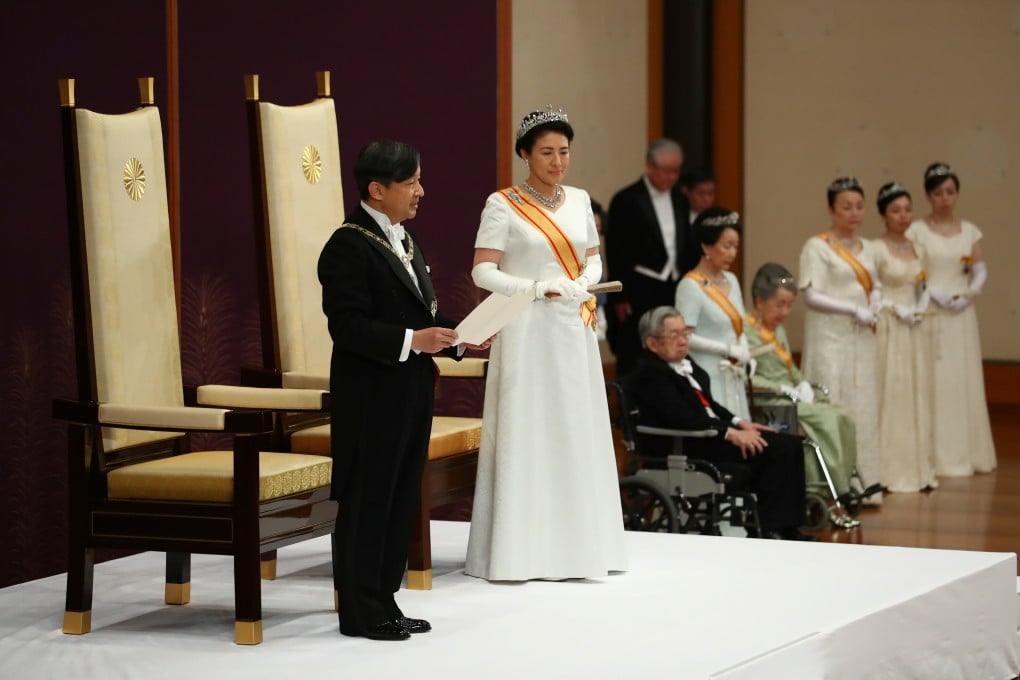Japan’s Emperor Naruhito pledges to be ‘symbol of unity’ after ascending Chrysanthemum Throne to begin new Reiwa era
- Former Emperor Akihito, 85, stepped down midnight on Tuesday, bringing an end to the Heisei era spanning his 30-year reign
- The public will have to wait until Saturday to greet the new emperor and his wife, Empress Masako, when they make their first public appearances

“In acceding to the throne, I swear that I will reflect deeply on the course followed by His Majesty the Emperor Emeritus and bear in mind the path trodden by past emperors, and will devote myself to self-improvement.
“I also swear that I will act according to the Constitution and fulfil my responsibility as the symbol of the state and of the unity of the people of Japan, while always turning my thoughts to the people and standing with them. I sincerely pray for the happiness of the people and the further development of the nation as well as the peace of the world.”
Naruhito officially became emperor at the stroke of midnight and went through a series of rituals several hours later on Wednesday morning. Imperial regalia known as Sanshu no Jingi – the sacred mirror, sword and jewels – and state and privy seals were passed on to the new monarch. The sword represents valour, the jewels represent benevolence while the mirror signifies wisdom.
Enclosed in cases and only seen by the emperor and high priests, the sword and stones were then placed on stands made of Japanese cypress. The mirror is kept at Ise Grand Shrine, the holiest Shinto site in Japan.